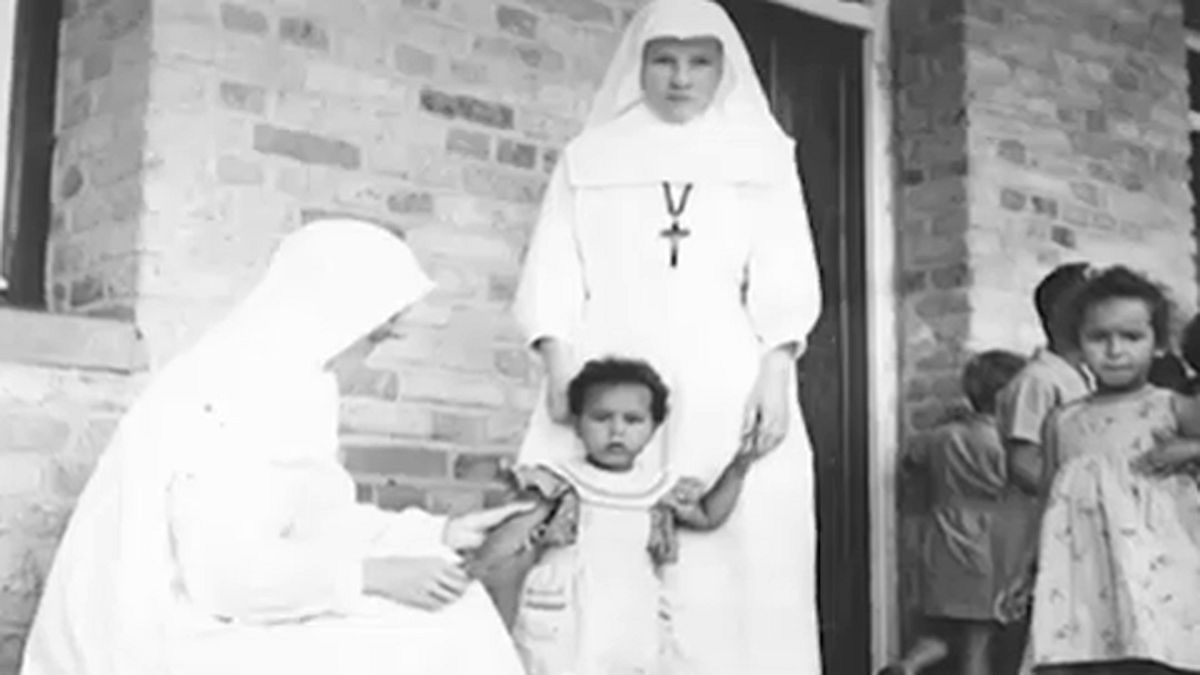Known as "metis", they are the children of white Belgian settlers and black local women in the Congo, when it was still a Belgian colony.
For 60 years five women have remained silent and hid their suffering from their own families. Now they have decided to go public with their stories and sue the Belgian state for crimes against humanity.
Léa, Monique, Noëlle, Simone, Marie-José, were known as "metis", the children of white Belgian settlers and black local women in the Congo, when it was still a Belgian colony.
Aged just two- or three-years-old, they were torn from their families and sent to a Catholic mission to be cared for by nuns.
"We were called the children of sin because the union between the white man and a black woman was not tolerated," explains Léa Tavares Munjinga. She said they were called all kinds of names, like "cafe au lait" (coffee with milk) and children of prostitution.
"It was hurtful, we cried," she added. "But they didn't care. We were excluded. We always felt excluded."
The "metis" children were once again abandoned during the upheaval of independence in 1960. Amid rising violence during the Congo Crisis, the nuns were repatriated but the children were left to the mercy of militias.
"We thought they were coming to guard us and it was in the evening that the militias began to play with us," says Simone Ngalula. She recalls how they told them to take off their clothes and spread their legs.
"They put candles there, they put candles to show us how women give birth. But as a small child, you could not imagine."
In April 2019, the Belgian Prime Minister Charles Michel apologised on behalf of the state. Small comfort for the victims. Their lawyer, Christophe Marchand, says the kidnapping of children amounts to a crime against humanity.
These women are now demanding compensation. But they also want a trial in order to recover a part of their identity.
"These are things that still hurt to this day, which require us to ask for courage to talk about it. Especially talking about it to our children," says Marie-Josée Loshi, wiping a tear from her eye.
When contacted, the government refused to comment on an ongoing case. The first hearing is set for September 10.
It comes amid a growing anti-racism movement in Belgium, and institutions reckoning with the colonial past.
Statues of King Leopold II, are beginning to be removed from towns across the country. Leopold II is notorious for his personal rule over the Congo Free State, in which millions of Congolese are estimated to have died as he inflicted a regime of violence and exploitation, extracting the country’s wealth for his own personal gain.
